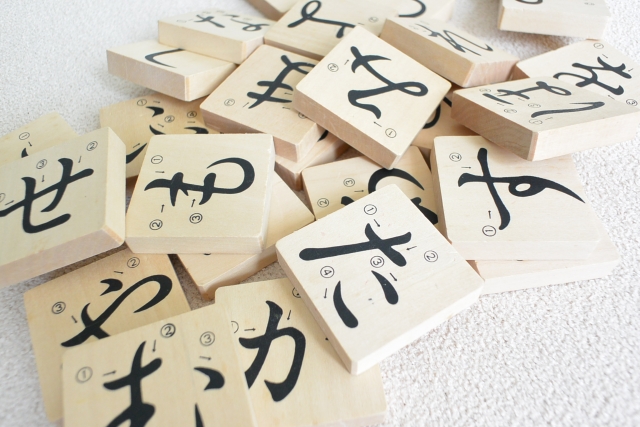「てにをは」とは、日本語において「は」「を」「が」「も」「に」などの助詞や接続詞など、言葉同士の関係を示す要素を指します。これらの言葉は文章内で役割や文の構造を明確にし、意味を付与する役割を果たしています。正確な使い方が重要であり、これらの言葉を誤った位置や文脈で使用すると、文章が不自然になったり、意図とは異なるニュアンスになる可能性があります。文のつじつまを合わせるために、適切な「てにをは」の使い方に気を付けることが重要です。
「私は」:
- 「私は、ショッピングに行きます。」
- 「私」が主語で、後続の文章は状況や行動を示しています。
「私を」:
- 「私をショッピングに連れて行って。」
- 「私に対して何かをしてもらう場合」に「を」を使います。ここでは、「私」を対象としてショッピングに連れて行くことを要望しています。
「私が」:
- 「私がショッピングに連れて行きます。」
- 「私が何かをする場合」に「が」を使います。ここでは、「私」がショッピングに誘導する行動を示しています。
「私も」:
- 「私もショッピングに連れて行って。」
- 「私を何かに追加してもらいたい場合」に「も」を使います。この場合、「私も」は「Me too」のように、他の人が行くショッピングに追加で参加したい意向を表しています。
「私に」:
- 「私にショッピングを教えてください。」
- 「私が受け身で何をされる・されたい場合」に「に」を使います。ここでは、他者によって私にショッピングの知識やアドバイスを提供してもらいたいという要望が表現されています。
このように「は」「を」「が」「も」「に」を理解して使いこなすことが日本語を理解する場合に大切になります。
「私は」:
- 「私は、ショッピングに行きます。」
- 「私」が主語で、後続の文章は状況や行動を示しています。
「私を」:
- 「私をショッピングに連れて行って。」
- 「私に対して何かをしてもらう場合」に「を」を使います。ここでは、「私」を対象としてショッピングに連れて行くことを要望しています。
「私が」:
- 「私がショッピングに連れて行きます。」
- 「私が何かをする場合」に「が」を使います。ここでは、「私」がショッピングに誘導する行動を示しています。
「私も」:
- 「私もショッピングに連れて行って。」
- 「私を何かに追加してもらいたい場合」に「も」を使います。この場合、「私も」は「Me too」のように、他の人が行くショッピングに追加で参加したい意向を表しています。
「私に」:
- 「私にショッピングを教えてください。」
- 「私が受け身で何をされる・されたい場合」に「に」を使います。ここでは、他者によって私にショッピングの知識やアドバイスを提供してもらいたいという要望が表現されています。
このように「は」「を」「が」「も」「に」を理解して使いこなすことが日本語を理解する場合に大切になります。
te-ni-wo-ha
“te-ni-wo-ha” refers to particles and conjunctions in Japanese such as “ha,” “wo,” “ga,” “mo,” “ni,” and other elements that indicate relationships between words. These words serve to clarify roles and sentence structure within a sentence to impart meaning. Precise usage is important, and using these words in the wrong position or context can make a sentence unnatural or have the wrong nuance. It is important to pay attention to the proper use of “te-ni-wo-ha” in order to make sentences succinct.
“Watashi wa”:
- “Watashi wa shoppingu ni ikimasu(I am going shopping.)”
- “Watashi” is the subject, and the following words express a description or action.
“Watashi wo”:
- “Watashi wo shoppingu ni tsurete itte.(Take me shopping.)”
- Use “wo” when “watashi” is the object of the action. Here, “watashi” wants to be taken shopping.
“Watashi ga”:
- “Watashi ga shoppingu ni tsurete ikimasu(I will take you shopping.)”
- Use “ga” when “watashi” is performing the action. Here, “watashi” is taking someone else shopping.
“Watashi mo”:
- “Watashi mo shoppingu ni tsurete itte(Take me shopping too.)”
- Use “mo” when “watashi” is being added to the action. In this case, “watashi” wants to also be taken shopping, as in “Me too.”
“Watashi ni”:
- “Watashi ni shoppingu wo oshiete kudasai(Teach me to how to shop.)”
- Use “ni” when the action is performed for “watashi.” Here, “watashi” wants others to provide shopping expertise.
As you can see, mastering the use of “ha,” “wo,” “ga,” “mo,” and “ni” is important when trying to understand Japanese.
sign up for the Japanese-Online Newsletter
__..-・**・-..__..-・**・-.._ あいうえお かきくけこ さしすせそ たちつてと なにぬねの はひふへほ まみむめも やいゆえよ らりるれろ わゐうゑを ん __..-・**・-..__..-・**・-.._
#JapaneseOnline #LearningJapanese #FreeJapaneseLessons #JapaneseVideoLearning #JapaneseAnime #Anime #JapaneseFood #Bloguru

